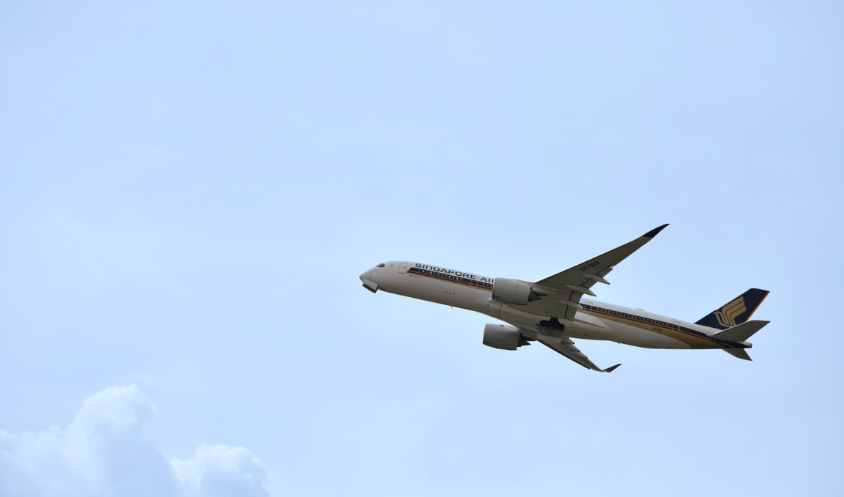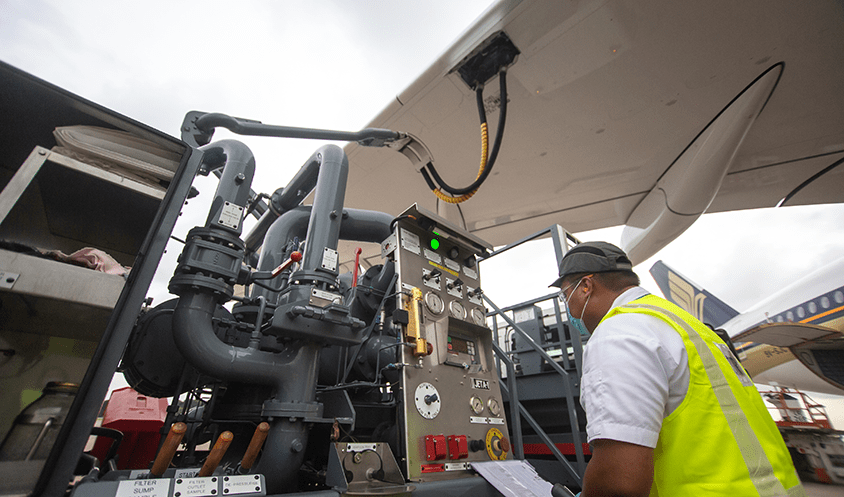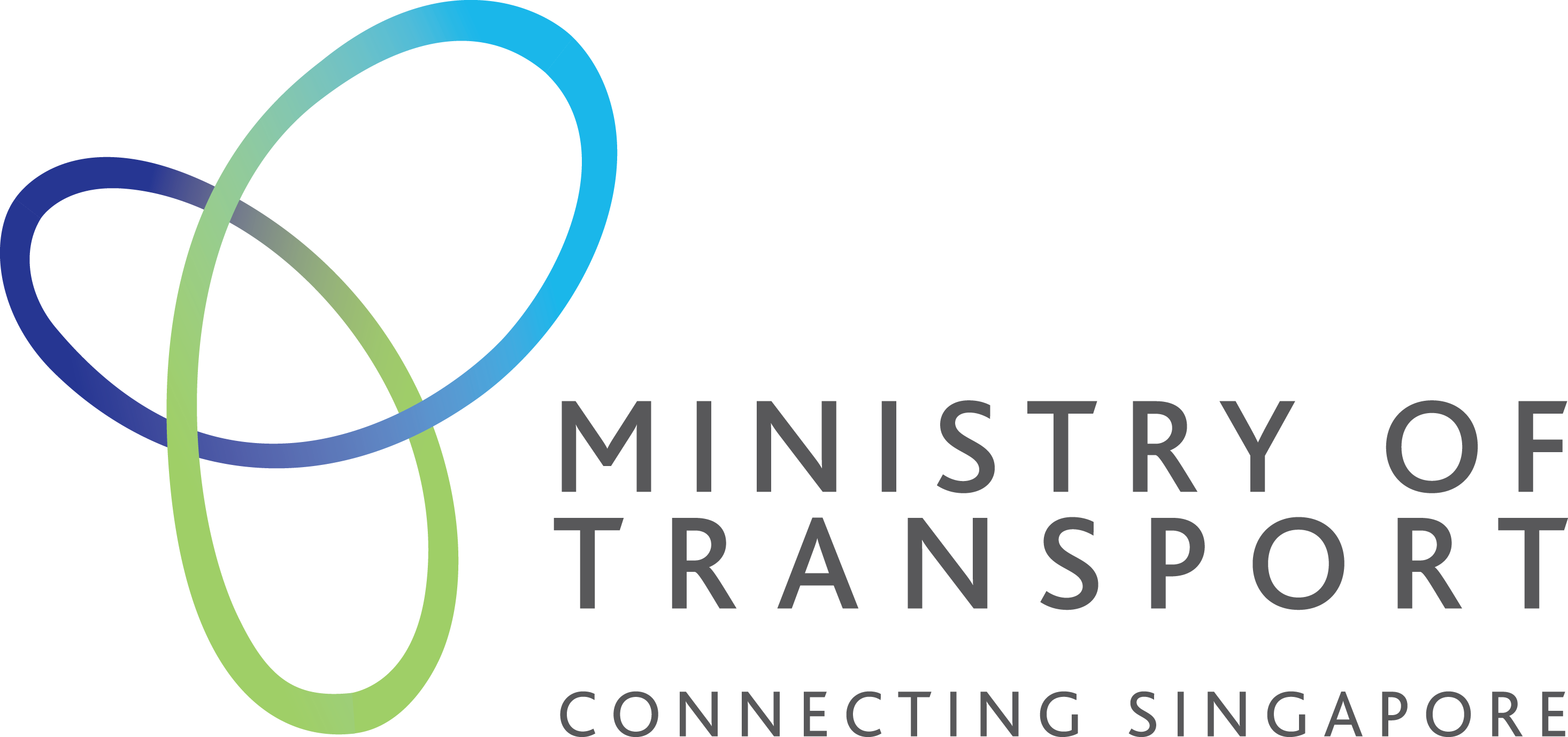Green aviation
Greener options to fly.

Sustainability is a key priority of the aviation sector.
The Singapore Sustainable Air Hub Blueprint, published by CAAS in 2024, sets out Singapore’s action plan for decarbonising our aviation sector. We will continue to work with industry stakeholders to reduce our carbon footprint, while ensuring our air hub remains competitive.
International aviation emissions
Singapore’s efforts are aligned to the International Civil Aviation Organization (ICAO)’s Long Term Global Aspirational Goal (LTAG) for international aviation to reach net zero carbon emissions by 2050. Key initiatives include:
Participating in ICAO’s Carbon Offsetting and Reduction Scheme for International Aviation (CORSIA).
Sustainable Aviation Fuel (SAF) is the primary pathway for aviation decarbonisation and is produced from lower-carbon sources such as waste oil. SAF reduces carbon emissions by up to 80% compared to conventional jet fuel. Singapore has set a 1% SAF uplift target for 2026, with the goal to raise this to 3-5% by 2030, subject to global developments and the wider availability of SAF. To support this, a mandatory SAF Levy will apply to Origin-Destination passengers, Origin-Destination cargo shipments, and general and business aviation flights departing Singapore from 1 October 2026, for tickets or services sold from 1 April 2026.
Improving Air Traffic Management (ATM) to optimise flight operations and reduce fuel burn.

Domestic emissions
Singapore is actively pursuing the following initiatives to tackle domestic aviation emissions:
Energy-efficient operations: Upgrading lighting and chiller systems at Changi Airport to enhance energy efficiency
Solar energy: Stepping up solar deployment on terminal buildings at Changi Airport, and studying the viability of solar deployment at airfield.
Cleaner energy vehicles: Our goal is for all airside vehicles to run on cleaner energy by 2040. To drive this transition, all new airside light vehicles (such as cars, vans and minibuses), forklifts, and tractors at Changi Airport will be electric from 2025. Changi Airport is enhancing the charging infrastructure at the airside, to support airport partners as they electrify their airside fleet. We are trialling the use of renewable diesel, especially for specialised airport ground handling vehicles where there are no viable electric models.
